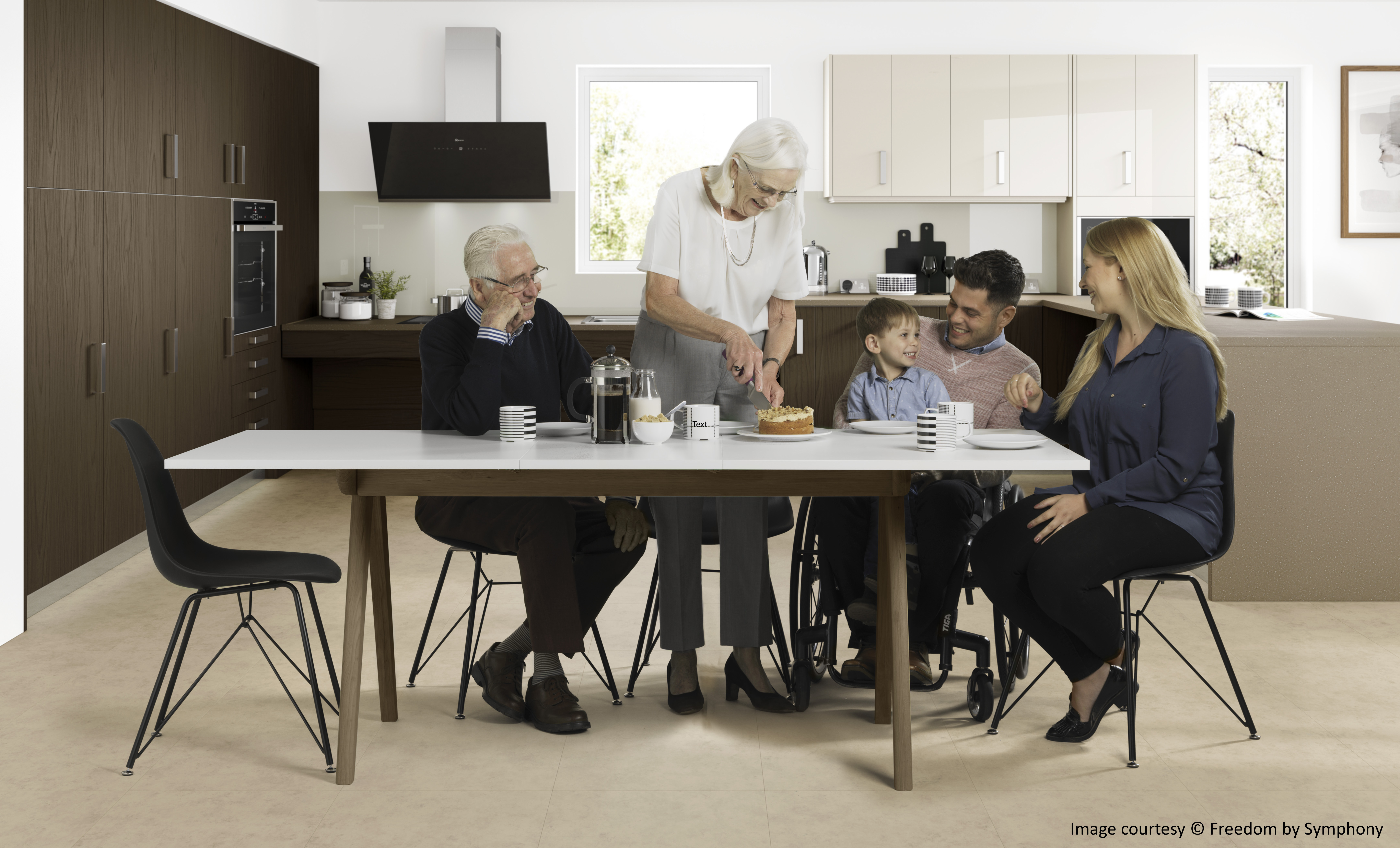Landlords & Investors
Increased yields
Fewer void periods and lower associated expenses, as wheelchair users tend to stay longer when they find a suitable property.
Social impact
Accessible housing enables wheelchair users to participate fully in life. You can be a catalyst for transforming the lives of others.
Positive tenant relationships
Wheelchair users understand/appreciate, more than most, when their most basic housing meets are really met, which means looking after your property.
Reducing risk
Use our quick-start and long-term strategies to realise potential value before you commit to invest.
Future-proofing your portfolio
Understand the UK’s unmet housing needs curve and how to stay ahead.
Guy made a huge contribution in his time with Abode Impact by developing an asset acquisition strategy, leading on strategic conversations regarding asset design, and building relationships with developers. He also introduced the business to a number of key contacts and brought with him in-depth knowledge of not only accessibility but the whole property market. While working with Guy I was impressed with his ability to balance commercial elements without compromising on standards.
Eleanor Bowden, former CEO, Abode Impact
Consultancy & agency
Understanding your objectives and how accessible housing could work for your portfolio – second-hand or new build. Insight, experience and practical support on renting accessible properties to wheelchair users. Advice on existing properties and acting on your behalf on future purchases.
Corporate
For larger portfolios and investment funds, research, acquisition strategy and asset design guide, and reporting to your Investment Committee.
Tenant sourcing
Introduction to your tenants, before adaptations or incurred cost. Full administration, including landlord/tenant checks and contracts.
Developers & designers
Support for project teams throughout all RIBA work stages. Please include us from the beginning (Stage 0 – Strategic Definition) as accessibility is most successful when designed in from the start.
Support
Full support through purchase, design, supply and implementation.

Myth: I’m worried that I’ll end up having to do expensive building works.
BUSTED: Any landlord may have to make reasonable adjustments in order that a disabled tenant is not disadvantaged over a non-disabled tenant. However (1) this doesn’t include making changes to a physical feature (e.g. widening doorways, removing walls or installing permanent ramps) and (2) what constitutes reasonable depends on a number of factors, including portfolio size of landlord, tenancy length, expense to undo an adjustment. This Citizens Advice article is helpful on the issue.
If you want to make physical alterations, then there may be a few ways of getting help.
Myth: A wheelchair user will damage my property.
BUSTED: If a property is suitable for a wheelchair user, there should be no more likelihood of damage than with any non-disabled tenant. In fact, because of establishing the relationship to get the wheelchair users into the property and their understanding of the value of you as an accessible property landlord, they’re more likely to treat your property with the utmost respect and care, with greater likelihood of alerting you to maintenance needs which are your responsibility. And as with all standard tenancies, you will have inventories and deposit cover in the unlikely event of damage.
Myth: I don’t want a social security tenant.
BUSTED: That someone is a wheelchair user doesn’t mean they are dependent on benefits. According to LSE research, conducted for Habinteg and the Papworth Trust, of the 1.8m people in the UK needing accessible homes, 39% have incomes in the top half of income distribution.
Myth: I’ll be left with ugly adaptations that will cost me to put back.
BUSTED: There are two parts to this myth. First, accessibility needn’t be ugly or clinical.. unless it has been designed this way. It should look and feel like a standard home - except better. Accessibility is about flow and space, so central hallways, wider doors and wet-rooms don’t need putting back: they will be beneficial and desirable features of your property. Second is the need to put things back. You may do, in which case, any grab rails or hoists may be removed and made good by the exiting tenant, as part of their contract. However, depending on what the auxiliary items are, they could remain and be gifted to an inbound tenant - with a similar exit clause and no maintenance or liability written into the contract. If it’s just a simple grab rail by a loo, given how many people would benefit (think visitors as well as tenants) chances are, you’ll be of a mindset to want to leave certain features.
Myth: There’s no demand for wheelchair accessible properties.
BUSTED: There is authoritative research and reports on the issue of lack of supply of accessible homes. The issue here is one of connecting landlords and tenants: i.e. how properties are marketed and the agencies doing the marketing. Searching for an accessible property is a needle in a haystack, with the odds stacked against the wheelchair user, because they are mostly not provided with information online which enables them the same speed and flexibility of non-disabled searchers, and agents often form a barrier as they either don’t understand accessibility requirements or don’t want the perceived extra obstacles. The AccessiblePRS model solves this connection challenge.
Myth: I don’t want to be responsible for a person with disabilities.
BUSTED: Just because someone has a disability doesn’t mean that you have any responsibility for or obligations to them over any non-disabled tenant. You’re dealing with natural problem solvers who want their independence and to fully participate in their own lives, in the same way as non-disabled people.
Sign Up To Our Newsletter
The AccessiblePRS Newsletter brings you opportunities and news in support of an accessible property strategy. Sign up with your email address to receive these updates. You can unsubscribe at anytime.
